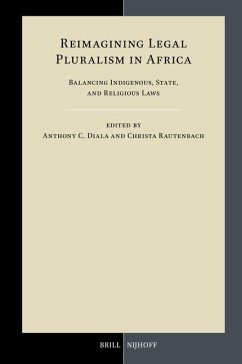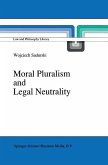This book is a compelling collection that challenges the prevailing conflict of laws approach to the interaction of state and indigenous legal systems. With 13 thought-provoking chapters, it introduces adaptive legal pluralism as an alternative framework that emphasises dialogue and engagement between these legal systems.
Hinweis: Dieser Artikel kann nur an eine deutsche Lieferadresse ausgeliefert werden.
Hinweis: Dieser Artikel kann nur an eine deutsche Lieferadresse ausgeliefert werden.








